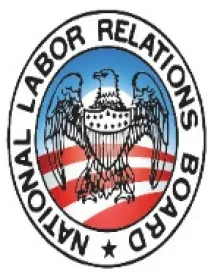National Labor Relations Board (“NLRB” or the “Board”) rulings are requiring employers to pay close attention these days to employment policies that, at first blush, may not seem to implicate any prohibition under the National Labor Relations Act (“NLRA” or the Act”).
The Board’s ruling in January 2013 in DirectTV, US Direct TV Holdings, LLC and International Association of Machinists is a good example of how a workplace rule designed to address an issue that, on its face, is unrelated to union activity may nevertheless be found to infringe upon employees’ rights under the Act. The Board found unlawful four DirectTV work rules on the grounds that employees would reasonably construe the language in the handbook provisions and corporate policies as prohibiting protected concerted activity under Section 7 of the NLRA. Section 7, of course, provides to employees the right to engage in protected concerted activities for mutual aid or protection and has been held to protect various communications by an and among employees regarding the terms and conditions of employment.
One of the DirectTV handbook provisions instructed employees, “Do not contact the media.” A similar corporate policy stated, in relevant part, “E mployees should not contact or comment to any media about company unless pre-authorized by Public Relations.” The Board has held that Section 7 of the Act encompasses employee communications about labor disputes with newspaper reporters. The Board also has previously held that any rule that requires employees to secure permission from the employer as a precondition to engaging in protected concerted activity on an employee’s free time and in non-work areas is unlawful. Accordingly, the Board found DirectTV’s restrictions on employee communications with the media to be unlawful.
Another DirectTV handbook provision at issue required employees to contact the company’s security department if law enforcement wanted to interview or obtain information regarding a DirectTV employee. Noting that the NLRA protected employees who file unfair labor practice charges or who provide information to the Board in the course of a Board investigation, the Board held that a reasonable employee would conclude that the DirectTV handbook provision would require the employee to contact the company security department before cooperating with a Board investigation. The Board acknowledged that an employee may, in some circumstances, have a legitimate interest in knowing about law enforcement agents’ attempts to interview employees, but it held that the policy was ambiguous in that it failed to distinguish those situations from protected employee contacts with Board agents or other law enforcement officials.
Another handbook provision at issue instructed employees to “[n]ever discuss details about your job, company business or work projects with anyone outside the company” and to “[n]ever give out information about customers or Direct TV employees.” The handbook also expressly included “employee records” as one of the categories of “company information” that must be held confidential. The Board held that the explicit prohibition on releasing information concerning the “job” or fellow “DirectTV employees” as well as “employee records” would reasonably be understood by employees to restrict discussion of their wages and other terms and conditions of their employment.
The Board also found unlawful the corporate policy that provided that “[e]mployees may not blog, enter chat rooms, post messages on public websites or otherwise disclose company information that is not already disclosed as a public record.” The Board noted that the company handbook contained a confidentiality rule that defined “company information” as including “employee records” and that employees who read the two policies in tandem would understand the intranet policy to prohibit disclosure of “employee records” which would include information concerning their own or fellow employees’ wages, discipline, and performance ratings. Therefore, the Board found the intranet policy to be unlawful.




 />i
/>i
